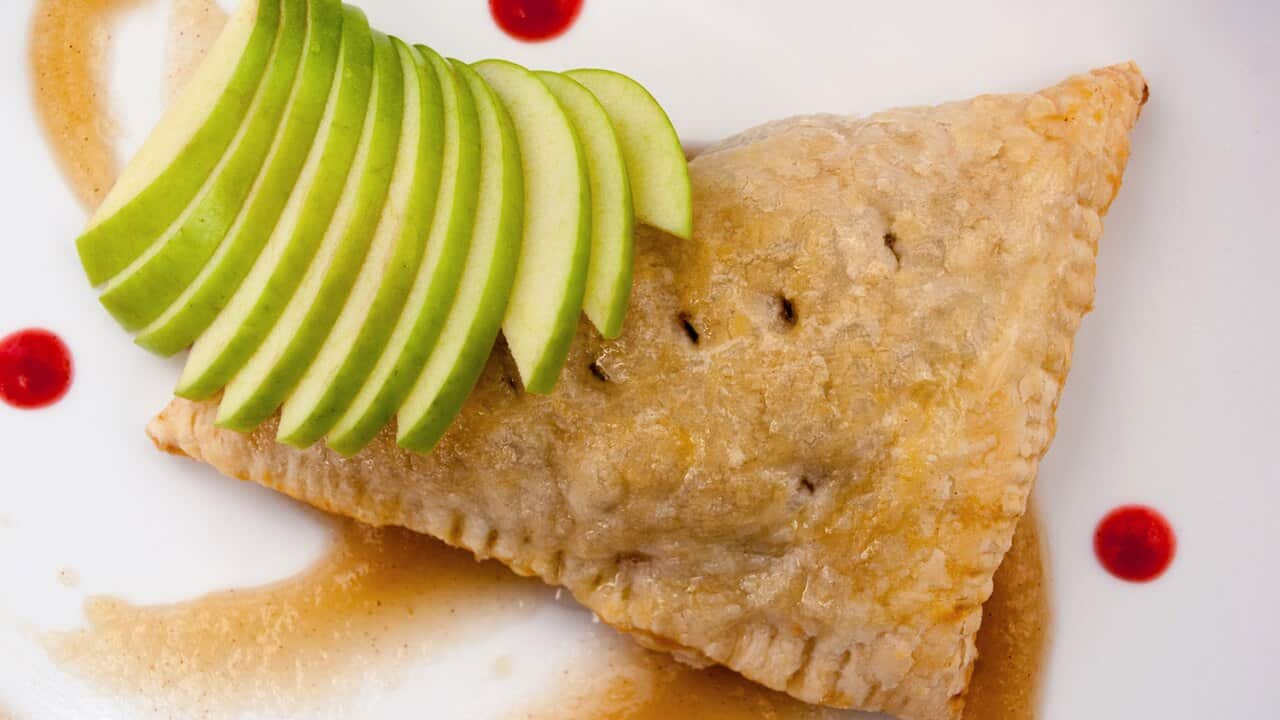The humble, healthy apple has become even more appealing.
To date, we’ve known that it’s one of the simplest and most accessible ways to get a vitamin, fibre and antioxidant fix. But now, a shows that a single apple may be awash with bacteria, positioning the whole fruit as a potential probiotic for people who want to build a healthy gut.
Researchers from analysed both organic and conventional apples to test the differences in their microbial communities.
They found that organic and conventional apples weighing 240 grams have the same amount of bacteria, about 100 million.
The research, published in the journal Frontiers in Microbiology, also determined that the type of community living on organic apples could be better for your gut than conventional apples.
Our results suggest that we consume about 100 million bacterial cells with one apple.
The results demonstrated that organic apples harbour a more diverse and balanced bacterial community than non-organic apples.
“Our results suggest that we consume about 100 million bacterial cells with one apple,” the study reads. “Although this amount was the same, the bacterial composition was significantly different in conventionally and organically produced apples.”
Accredited Practising Dietitian with ACT Division, Leanne Elliston, tells SBS although more research is needed into the microbial composition of organic versus non-organic apples, it’s highly likely that organic apples have a more diverse bacterial community.
“It is no surprise that organic apples may have more diverse bacteria because they are exist in their natural state and don’t have pesticides,” says Elliston.
She explains that a variety and balance of bacteria is always preferable to limit the overgrowth of any one species of bacteria in the gut.
“We know that not all the probiotics, like the bacteria contained in an apple, that we consume will make it to our bowel. So if we consume a more diverse range of bacteria, there may be a greater chance that some of that bacteria will make it to the gut and colonise.”
It is no surprise that organic apples may have more diverse bacteria because they are exist in their natural state and don’t have pesticides.
The Austrian researchers also tested the various parts of the apple – the stem, peel, seeds and tissue – for bacteria.
They found that the majority of the bacteria are in the seeds, with the flesh accounting for most of the remainder. So if you’re only eating apple flesh and skin, you may miss out on 90 per cent of the bacteria.
Although it’s highly unlikely that most Australians are going to eat apples complete with the core, Elliston says eating the flesh is still beneficial.
“There are still some beneficial bacteria in the apple flesh itself. We always knew that apples were good for us but now we know they have good bacteria for our gut.”
So are apples an accessible, fruity probiotic?
Elliston believes that bacteria-carrying apples can rightly be labelled as a probiotic, along with other products such as yoghurt, kimchi and sauerkraut.
“This study shows there’s some good bacteria in apples – so we can put apples in the probiotics category, along with other fermented foods,” says Elliston. “It’s always best to get our nutrients, even healthy bacteria, from food itself, in its natural form.”
Prebiotics feed good bacteria in our guts, giving the bacteria the nutrients they need. Good sources of prebiotics are wholefoods, from rye bread to legumes, kidney beans and cashews.
“Apples also have this prebiotic component in them, because of their fibre content. So technically, they are pre- and probiotics.”
But at the end of the day if you eat an apple, well done. Apples don’t cause any harm and are good for you, whether they organic or not.
However, Elliston cautions against people claiming that apples can do all things health-wise for everyone.
She explains that gut health is so personalised that what can work well for one person, may not work well for another.
Elliston also advises that people, generally, eat a healthy, balanced diet rich in fruit and vegetables, and source their probiotics from food rather than supplements.
Certain individuals who may have been on a course of antibiotics or suffered a lower bowel condition may be the exception – it is often recommended that they take a probiotic.
“At the end of the day if you eat an apple, well done. Apples don’t cause any harm and are good for you, whether they organic or not,” Elliston says.








